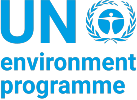This year, the International Environmental Technology Centre, United Nations Environment Programme (UNEP-IETC) is celebrating its 30th anniversary. As part of the series of events to commemorate the anniversary, UNEP-IETC organized IETC@30 Webinar on Gender and Waste on 7 September 2022.

Gender inequalities and gender roles are deeply embedded in many aspects of waste management. Yet, existing waste management policies and practices are often gender-blind, failing to address specific needs and issues related to gender dynamics at each level of policy and programme development and implementation. However, with their expertise and extensive experience in handling waste, women can play critical roles in waste management as agents of change, rather than being passive beneficiaries
Watch the recording of the webinar HERE
------------------------------------------------------
The Webinar was organized to draw attention to the nexus between waste management and gender. Panelists from different regions and experts shared experiences and lessons learned.
Moderator:
Monika MacDevette, Chief, Chemicals and Health Branch, and Principal Coordinator, IETC, UNEP
Panelists and presentations:
-
Anne Scheinberg, Springloop Cooperatie UA; Chair, ISWA Working Group on Recycling and Waste Minimisation (Presentation slides)
-
Carlos RV Silva Filho, President, International Solid Waste Association (ISWA)
-
Deepali Sinha Khetriwal, Director, Sustainability Services India, dss+ (Presentation slides)
-
Linda Godfrey, Principal Researcher, Council for Scientific and Industrial Research (CSIR) (Presentation slides)
-
Sonia M. Dias, Waste Specialist, Women in Informal Employment: Globalizing and Organizing (WIEGO) (Presentation slides)
During the panel discussion, panelists answered guiding questions such as what kind of roles women can play in waste management as agents of change (as opposed to passive beneficiaries) and what it would take to create an inclusive and enabling environment to take into consideration gender aspects to waste management. Panelists stressed the importance of actions such as collecting gender-disaggregated data and conducting gender assessment as the first step to understanding who does what in terms of waste management and the power dynamics and complexities of gender issues in waste management. The importance of bringing men and boys, as well as women and girls, into the conversation was also stressed, as gender is not just about women.
UNEP-IETC’s recent activities on gender and waste were also introduced by the gender focal point during the Webinar (Presentation slides). These include the Gender and waste nexus; Experiences from Bhutan, Mongolia and Nepal (UNEP-IETC and GRID-Arendal, 2019), and the GENDER AND WASTE NEXUS video series. UNEP-IETC will continue to be active on issues of waste management and gender, raising awareness on gender issues through various tools such as reports and videos and encouraging dialogues among different stakeholders, women and men, like this webinar.






